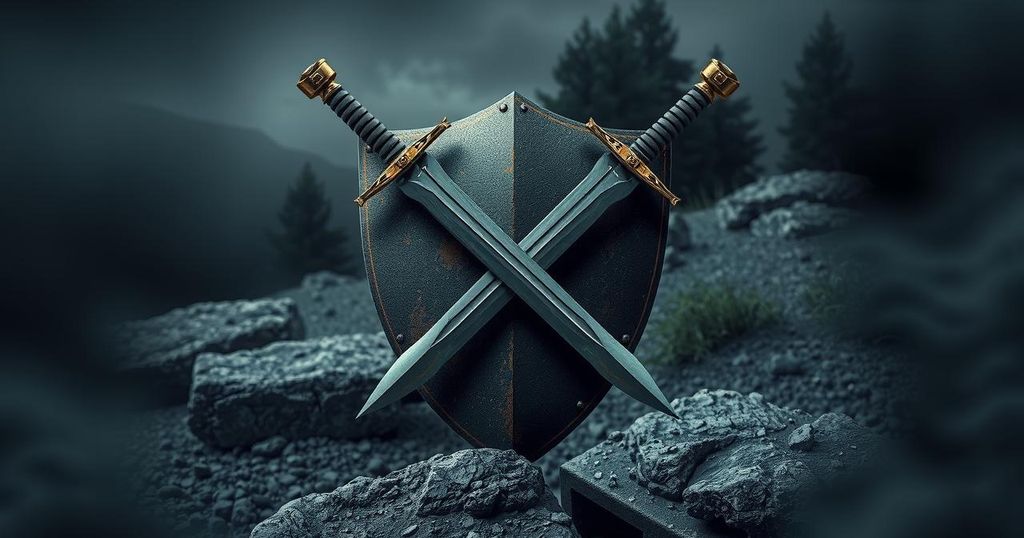DRC President Calls for Military Recruitment Amid Rebel Advances
The M23 rebels, backed by Rwandan forces, are advancing in eastern DRC, taking two districts in South Kivu. President Tshisekedi has called for military recruitment to counter the insurgents, criticizing the international community for inaction. The conflict, rooted in resource competition, poses a severe threat to regional stability and has provoked global concern over Rwanda’s role.
Rwandan-backed M23 rebels are advancing into eastern Democratic Republic of the Congo (DRC), having seized two districts in South Kivu province without facing resistance, according to local reports. This marks a significant escalation in violence, as the rebels close in on Bukavu, the provincial capital. Congolese President Félix Tshisekedi has urgently called for young recruits to join the military to combat the threat posed by these militants.
In a public address following the fall of Goma, the capital of North Kivu province, President Tshisekedi criticized the international community for its lack of action regarding the escalating conflict. He emphasized the need for a coordinated military response and rallied the population to enlist en masse in the army to defend the nation. The security situation in the region continues to deteriorate.
The M23 group, reportedly supported by 4,000 Rwandan troops, is advancing towards Bukavu, putting the DRC army on high alert. The situation is precarious as the Congolese forces are already stretched thin, with some troops having retreated to Bukavu from Goma. Tshisekedi pledged decisive action against the rebels and their backers, framing them as terrorists threatening national stability.
The ongoing conflict has prompted international concern, with the United States expressing distress over the violence, Germany canceling a meeting with Rwandan officials, and the United Kingdom warning of possible impacts on aid to Rwanda. Despite this, Rwandan officials assert their commitment to the M23 campaign, stating that it could extend beyond eastern DRC.
DRC, rich in minerals such as gold, cobalt, and coltan, is strategically valuable, adding economic motives to the conflict. Kinshasa accuses Rwanda of inciting violence to seize control of mineral resources, a claim supported by U.N. reports on Rwanda’s military presence in the region. Although Rwanda denies these accusations, it claims its actions are to eliminate the FDLR militia remnants responsible for the Rwandan genocide.
The current situation in eastern DRC is a continuation of a long-standing conflict fueled by competition for natural resources and regional geopolitics. The resurgence of the M23 rebels, who were previously active in the region during the early 2010s, has reignited fears of mass violence and instability. The DRC’s rich mineral deposits have made it a target for various armed groups and foreign influences, particularly from neighboring Rwanda, which has been accused of supporting the M23 in its military endeavors. The international community’s response has been criticized for insufficient engagement, further complicating the security landscape.
The ongoing escalation of violence in eastern DRC, particularly with the M23 rebels backed by Rwandan forces, underscores the pressing need for robust military and diplomatic responses. President Tshisekedi’s recruitment drive highlights the urgency of the situation. Despite international concerns and potential sanctions against Rwanda, the conflict’s complexity—intertwined with economic interests—remains a significant barrier to lasting peace in the region. Without effective intervention, the threat to regional stability will likely continue to grow.
Original Source: www.theguardian.com




Post Comment